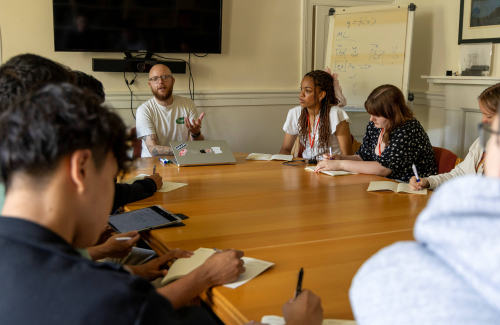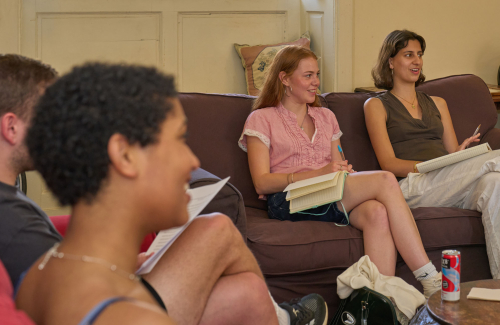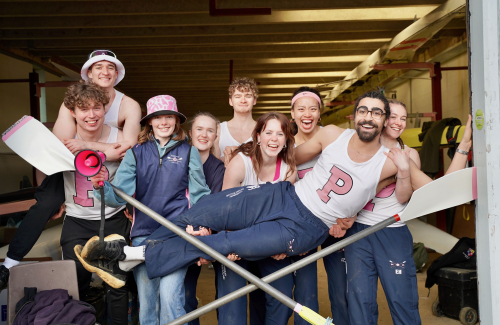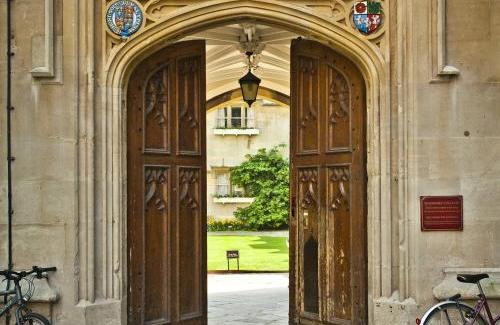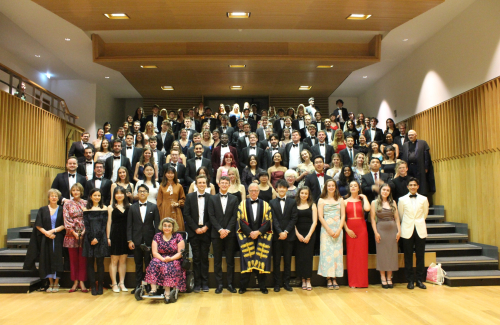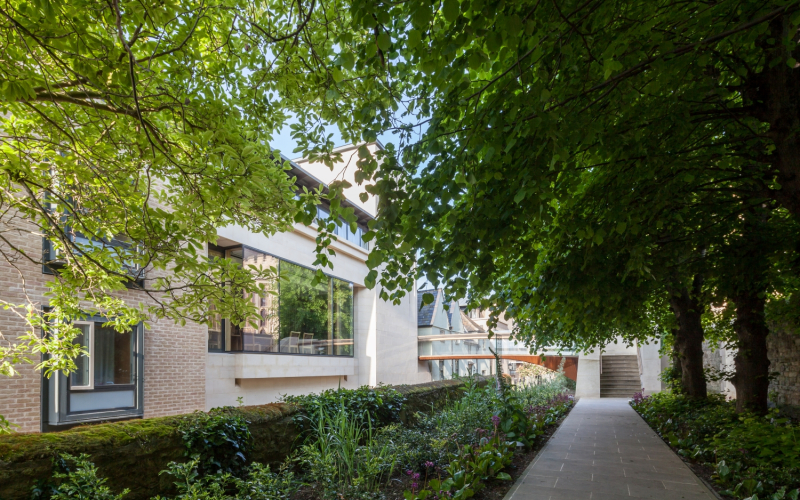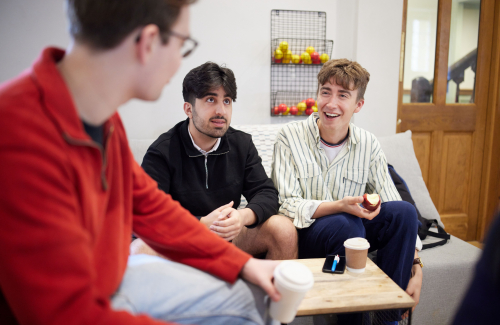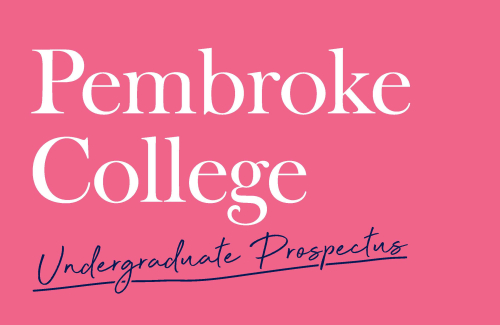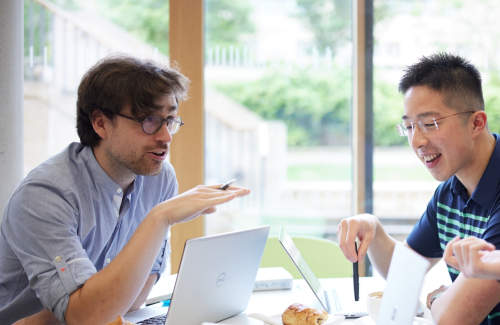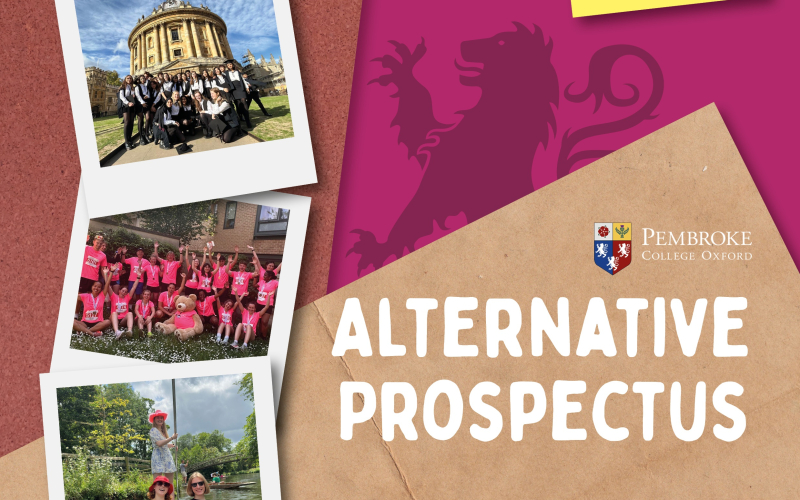Undergraduate Applicant Hub
Hear from our students
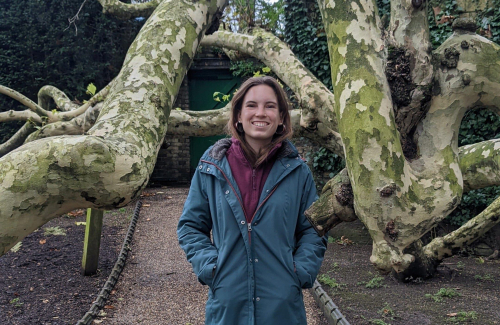
I want to encourage everyone who doesn't feel 'good enough' because I've been there. In and amongst various personal hardships of the past 3 years, I have been surrounded by wonderful tutors and fellow students who have helped me along the way. So thank you Pembroke!
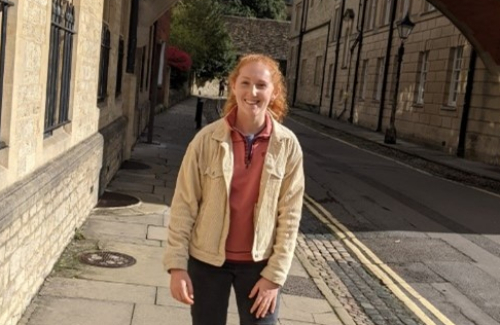
I decided to apply to Pembroke after the open day – I had visited a number of different colleges but none of them had quite the same welcoming feeling, a feeling which was cemented again during my time at interviews, where I met many more wonderful people and was able to experience more of daily life in college.
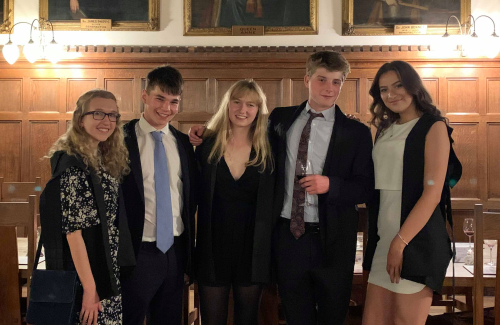
Pembroke is one of the smaller colleges in Oxford. This is one of its strengths as it helps to create a tight-knit community. Pembroke also has the advantage of being situated right in the heart of the city. There are many libraries and cafés in walking distance but the college also has its own library (open 24-hours a day, which can be useful on occasion) and its own café known as Farthings.
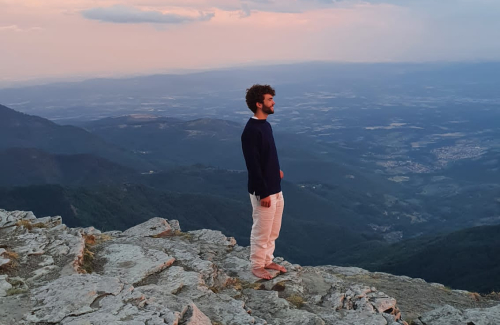
At first I was anxious about the workload, but once I arrived I soon realised that it’s very manageable - almost everyone seems incredibly passionate about what they're reading, whether that’s medicine or Machiavelli, and that sense of enthusiasm made getting into the groove much easier.
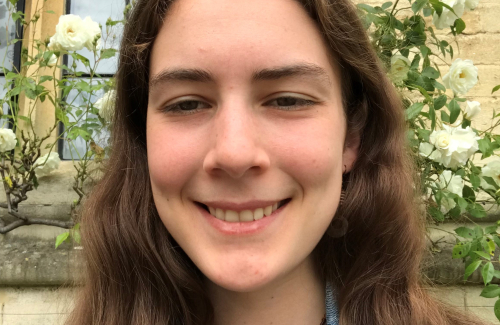
I have absolutely loved my time at Pembroke, and am incredibly grateful not only for the Jeremy Forty Scholarship, which will enable me to pursue my graduate research, but also for the opportunities and support I received throughout my undergraduate degree from all college members and staff: tutors, fellow students, and everyone who contributes to making Pembroke such a welcoming community.
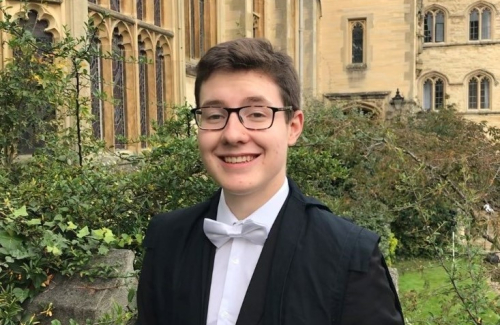
As well as Pembroke’s welcoming charm which undoubtedly helped me settle in, their financial support has been of tremendous value. Book grants have allowed me to broaden my French literary repertoire, while exam prizes and scholarships have reduced my anxiety and financial concerns, allowing me to focus more on my studies and enjoying university to the fullest.
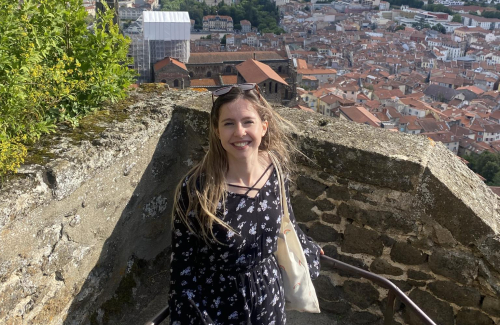
My main advice to those who feel they don’t match the “typical Oxford student” is to continue to engage with reading on your subject that interests you, and keep pushing yourself. If you can, apply to the outreach support that you have available to you – even if it’s online, it can really help.

